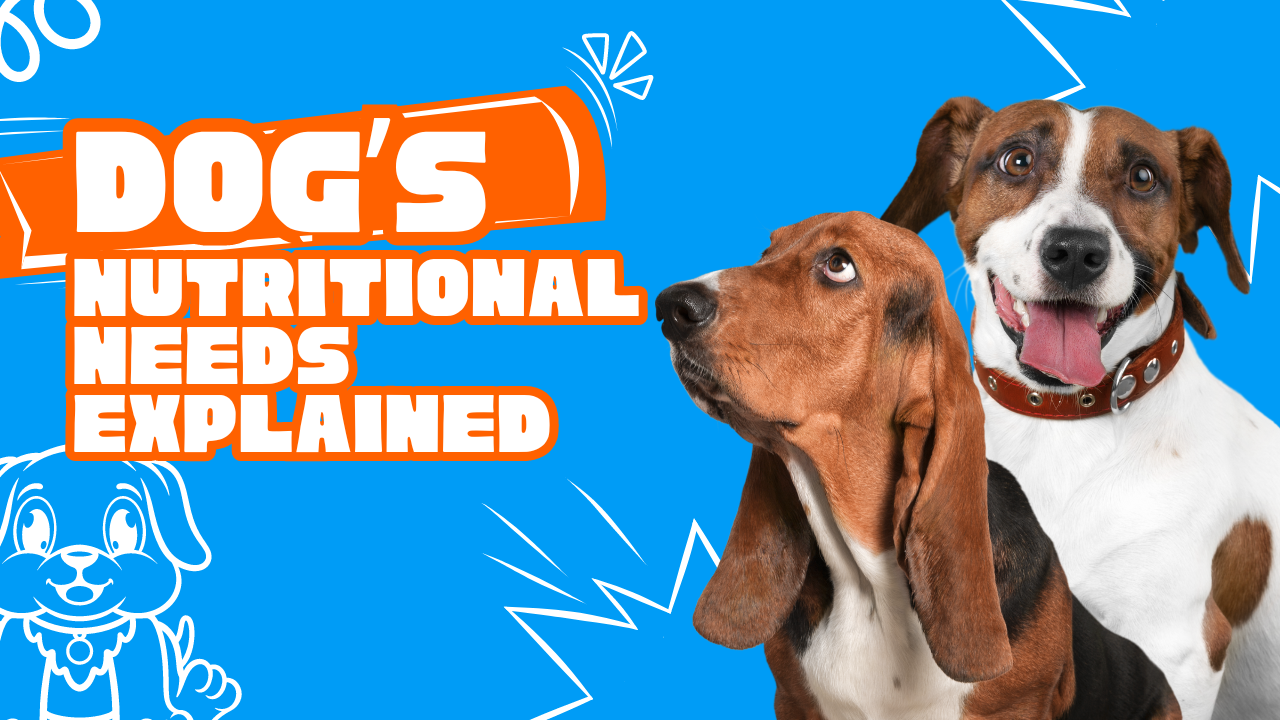Like us, our furry friends need a balanced diet to stay healthy, energised, and happy. But what does a balanced diet for dogs even look like? 🧐 Whether you’re feeding a cheeky Chihuahua like Nugget or a majestic Husky like Naya, understanding your dog’s nutritional needs is key to giving them the best life possible. So, let’s dig into the bowl of knowledge (pun intended) and break down your doggo’s dietary essentials!
1. Protein: The Building Block of Your Dog’s Body 🥩
If dogs had a favourite food group, it would probably be protein. Dogs are primarily carnivores, meaning protein is vital to their diet. It helps build muscles, supports their immune system, and gives them the energy to chase after those pesky squirrels 🐿️.
Good sources of protein for your dog include:
- Chicken 🍗
- Beef 🥩
- Lamb 🐑
- Venison 🦌
- Fish 🐟
- Turkey 🦃
- Duck 🦆
- Eggs 🥚
But here’s a fun fact: Not all proteins are created equal! Look for high-quality, easily digestible proteins. If your doggo has joint issues (like many do as they age), protein helps repair tissues and keeps them spry. Consider supplements to support those joints. We use these (use code NAYA20 for 20% off).
2. Fats: For a Glossy Coat and Brain Power 🧠✨
Fat often gets a bad rep, but dogs need healthy fats. Fats are a great energy source and help your dog absorb important vitamins like A, D, E, and K. Plus, they keep your dog’s coat shiny and their skin moisturised. 🌟
Fats like omega-3 and omega-6 are essential for brain health and reducing inflammation. You’ll find these in:
- Fish oil 🐠
- Flaxseed oil
- Chicken fat
- Sheep fat
- Coconut oil 🥥
Healthy fats are the secret ingredient if you want your pup to look like a canine supermodel with a glorious coat. Remember, moderation is key—too much fat can lead to weight gain, and we don’t want your pup waddling instead of walking! 🐾
3. Carbohydrates: The Energy Boosters ⚡
While dogs don’t need carbohydrates as much as humans, carbs can still be a helpful energy source, especially for active dogs. Carbs also provide fibre, which keeps your dog’s digestive system running smoothly (aka fewer tummy troubles and better poops 💩).
Good sources of healthy carbs include:
- Sweet potatoes 🍠
- Brown rice 🍚
- Pumpkin 🎃
- Quinoa
These carbs are gentle on your dog’s tummy and can help manage their energy levels throughout the day. Ever seen a dog zooming around the yard after dinner? Yeah, that’s the carbs at work! 🏃♀️💨
4. Vitamins and Minerals: The Micronutrient Masters 🌿
Like humans, dogs need a variety of vitamins and minerals to stay healthy. These nutrients are key in everything from bone strength to immune system function. You can find many of these in fruits and veggies, like:
- Carrots 🥕 (for vitamin A)
- Spinach 🌱 (for iron)
- Blueberries 🫐 (for antioxidants)
If your dog’s diet is well-balanced, they should be getting most of the vitamins they need from their food. However, a vet may recommend supplements if your dog is on a restricted diet or dealing with a health issue to ensure they get all the micronutrients they need. For example, Duvel is on a monoprotein diet of horse meat because of his IBD, and due to this disease, he doesn’t absorb as many nutrients from his food. He gets a vitamin supplement every day to ensure he’s not lacking any nutrients.
5. Hydration: Water, Water, Water! 💧
Water is a simple but often overlooked part of your dog’s nutritional needs. Dogs must stay hydrated to regulate their body temperature, digest food, and maintain healthy organs. Make sure fresh water is always available—especially if you live in a hot climate like I do in sunny Andalusia! 🌞
Dogs can become dehydrated pretty quickly, especially after exercise or during hot days. If you’re out hiking with your dog, bring enough water for both of you to stay hydrated. 💧🐕🦺
6. Special Considerations for Different Life Stages 🐶👵
Your dog’s nutritional needs vary depending on age, size, and health conditions. Puppies, for example, need more protein and fat to support their growth and boundless energy. Senior dogs might need fewer calories but more joint-supporting nutrients like glucosamine and chondroitin (Anicare to the rescue again! 🙌).
If your dog has special dietary needs—like food allergies, weight management issues, or joint concerns—be sure to consult your vet. They can help you tweak your dog’s diet to ensure they get exactly what they need at each stage of life.
7. Treats: The Fun (but Moderation is Key!) 🍪
Who doesn’t love treating their dog? Whether it’s for training, a job well done, or just because they’re the best thing ever (which they totally are), treats are part of the fun! 🦴 But remember, treats should only make up about 10% of your dog’s daily caloric intake. Look for healthy treats with real ingredients, or try making your own at home!
Wrapping Up: Nourish Your Pup for a Long and Happy Life 🐾❤️
Understanding your dog’s nutritional needs can feel like a lot at first, but once you get the basics down, keeping your furry friend healthy and thriving is easy. A balanced diet with the right amount of protein, fats, carbs, vitamins, and minerals will help your dog live their best life. Plus, don’t forget to throw in some love and belly rubs—those are just as important! 😘🐾
Do you have any questions about your pup’s nutrition? Feel free to reach out to me on IG: @naturaldoggie! 🌟

